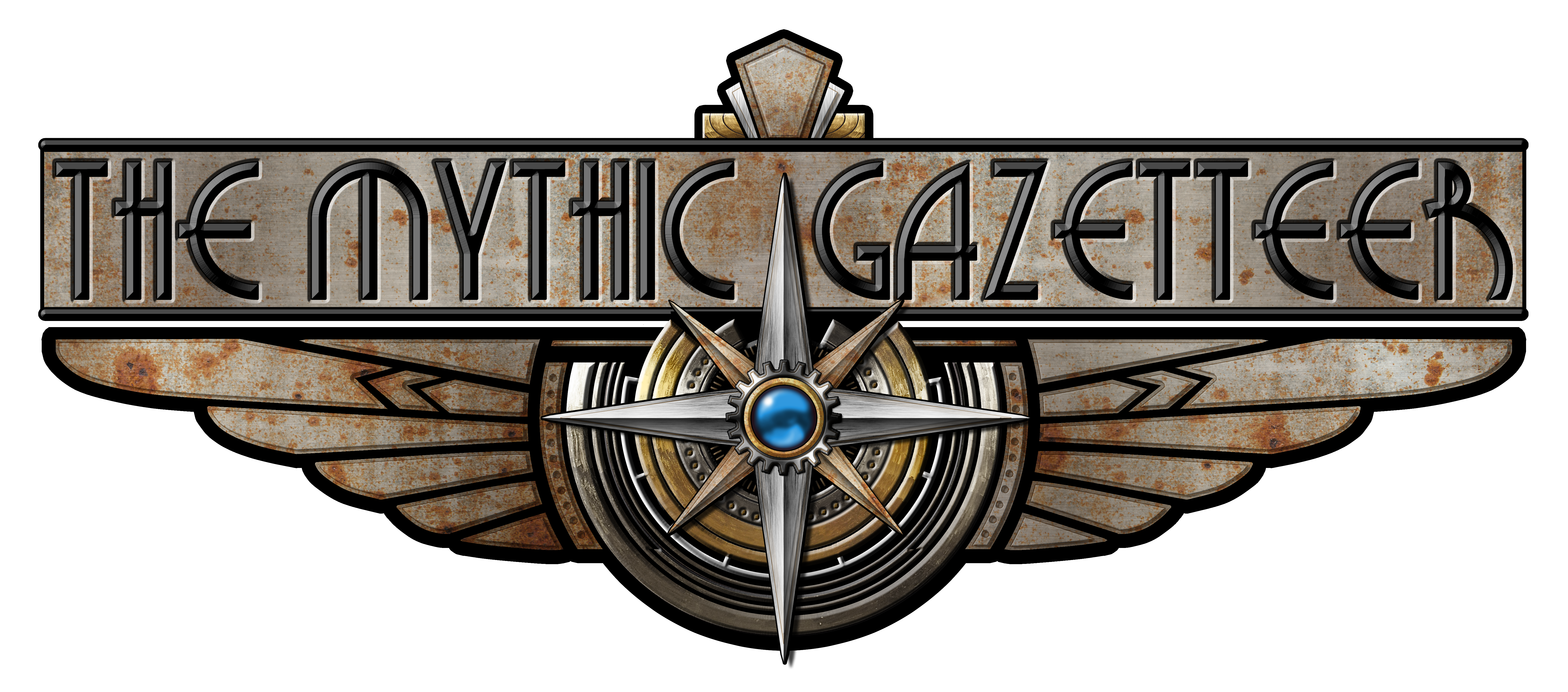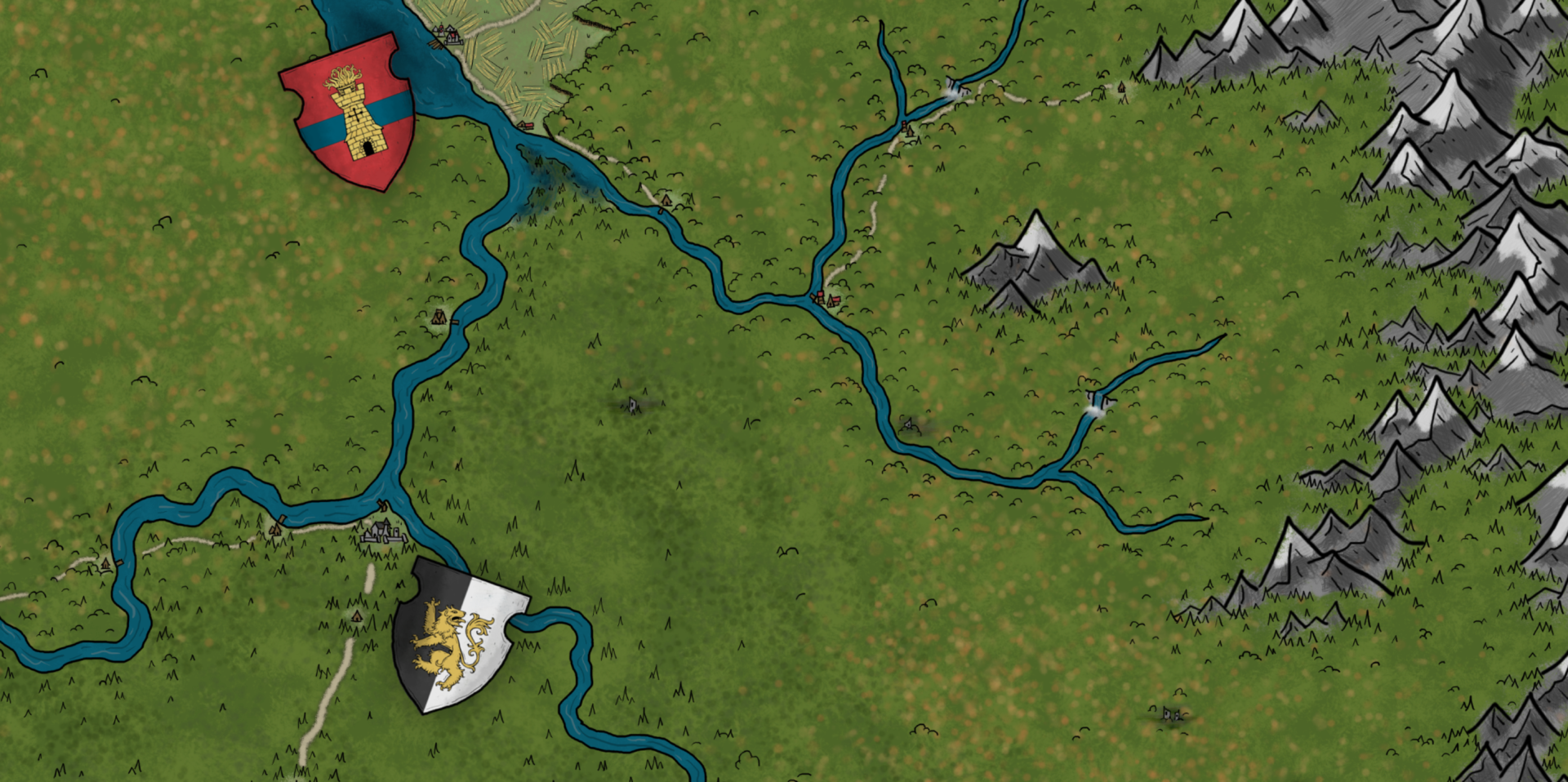Jared Rascher started a conversation over in the Misdirected Mark G+ community about mechanizing holidays in RPGs. Holidays play a big part in The Blackwood Errantry Codex (and in life in the actual middle ages). In fact, they play a big enough part in The Blackwood that I figured I’d have too much to say for a comment. So here’s a full post!
A Calendar Full of Holidays
There are eight popular holidays in The Blackwood:
- Fool’s Day: On the first day of the year (the day of the Spring equinox), societal roles are reversed. Common folk make merry, the nobility are required to give generous alms to whomever comes to their door, and general debauched revelry is common. Over the following week, commoners gives thanks for this day by planting the first harvest of the new year.
- Starflower Festival: Elven magic is at its strongest during the Summer solstice. To combat this, the people of the Blackwood set off fireworks to spook the elves and pagans back into their wilderness. The festival lasts all night and is followed by a rest day.
- Riverfolk Tournament: Following the Starflower Festival every summer, a tournament is held in a riverside city to celebrate the skills and achievements of the riverfolk. It is a full week of contests and revelry, with many fine prizes to be won by the competitors.
- Harvest Festival: On the Harvest equinox, the people of the Blackwood give thanks to the ancestors for a bountiful crop. They gather the final crop over the next week, then partake in a three-day feast of thanksgiving.
- Hunter’s Moon: The full moon just before the advent of winter is a symbol of searching out new goals. It is a time to make resolutions for the next year.
- Yuletide Festival: During the Winter solstice, a time of scarcity, the people of the Elder Kingdom take a moment to remember the strength of fellowship. Families and friends gather together, share what food they can spare, and raise three toasts: to the ancestors, to the Elder King, and to each other. In more prosperous times, gift giving was a common practice at Yuletide.
- Woodkin Tournament: Every winter after the Yuletide Festival, a tournament is held in one of the woodland cities to celebrate the skills and achievements of the woodkin. Like the Riverfolk Tournament, this is a full week of contests and revelry, with many fine prizes to be won by the competitors.
- Ancestor’s Eve: One week before the year ends, people gather up the ashes of their deceased from the previous year, then burn them all in communal pyres mixed with grievances written out on strips of paper. This ritual venerates the deceased as ancestors and kills the old year to make way for the new. Once the pyres are burned out, the ashes are spread over the fields to fertilize the next season’s crops.
I imagine there are other, smaller holidays celebrated in the Elder Kingdom’s various cultural niches, but I leave that open for individual tables to decide.
Making it a Game
Of those eight holidays, the Starflower Festival, Riverfolk and Woodkin Tournaments, and Ancestor’s Eve all feature in at least one quest each. For those of you with the book, check out the Starflower Codex series of quests for the obvious holiday affiliation, and To the Root of Wisdom for the quest featuring Ancestor’s Eve. For these two quests, the holidays are background events that the GM can invoke for flavor, but I encourage people to make use of them throughout their game. Both are important events in the life of people in the Blackwood.
The two Tournaments are each expanded into their own Savage Tales. Without spoiling too much: becoming tournament champions is an important step in the Plot Point Campaign, so I wanted to make sure there was plenty of opportunity for players to become champions. Timeliness is important in the Plot Point Campaign too, and it would be a bummer if you blew your chance at one tournament!
The first day of each Tournament is a time of revelry and boasting. Attendees and competitors share feasting tables and make bold claims about their expected performance in the tournaments. Then, each day is the focus of a single event for five days, followed by a final day of awards and more revelry. Here’s the specific breakdown for each Tournament:
Riverfolk Tournament
- Cogs and Caravans: dice and card games using the Gambling skill
- Log Roll: a contest of balance using the Agility trait
- Storytelling: a contest invoking Lesson Learned (a Setting Rule unique to the Blackwood) and the Persuasion skill
- Sailing Canoe Race: a demolition-derby style race represented by a Boating-based Dramatic Task
- Errant’s Arena: a 12-person melee where contestants are removed from competition after suffering one Wound
Woodkin Tournament
- Cogs and Caravans: dice and card games using the Gambling skill
- Springboard Chop: a contest of speed and power using the Vigor trait
- Storytelling: a contest invoking Lesson Learned (a Setting Rule unique to the Blackwood) and the Persuasion skill
- Treetop Race: a high-flying, dogfight-style Chase using Climbing at the primary skill
- Hunter’s Prize: a ranged marksmanship contest using either the Shooting or Throwing skills
These events accomplish a few tasks at once. First, they give the players a chance to directly interact with the culture of the Elder Kingdom without the hack-n-slash gameplay common in traditional tabletop games. Second, they provide a broad range of challenges—invoking two traits, at least seven skills, two situational mechanics, and one Setting Rule unique to the Blackwood—to make sure just about any kind of player can be a contestant. Third, you’ll notice each tournament shares the gambling and storytelling events; it was important to me to show that the Elder Kingdom has regional specialties but is united by certain activities too. Finally, they take inspiration from real-world competitions, both from tournaments in middle ages Europe and modern-day lumberjack competitions:
The Log Roll in action:
The Springboard Chop in action:
So to make it explicit, these Tournaments are a microcosm of my game design philosophy: get players mechanically involved with the culture of a setting, invoke real-world influences that might inspire real-world research, provide nonviolent opportunities for nonviolent characters, and marry my worldbuilding to the gameplay of a campaign.
Another Example
Richard Woolcock has tied several of his Saga of the Goblin Horde one sheets to specific holidays:
Richard’s made these especially approachable for players by tying them pretty closely to real-world holidays. He’s also added some important setting-specific flavor by always throwing in the twist of goblin shenanigans. Saga of the Goblin Horde is a lean setting, but it does an excellent job revealing details of the world—especially holidays—through gameplay like this.
So there you have it. A few robust examples of how holidays can be incorporated into a game world and a campaign.

